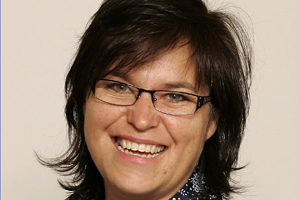|

|
The portfolio of Vice-Rector: Research is new and was created as part of the university's academic project in which the institution aims to increase its research activities and outputs.
Photo: Supplied
12 March 2013 |
Curriculum Vitae
The Council of the University of the Free State (UFS) approved the appointment of Prof Corli Witthuhn as Vice-Rector: Research, during its meeting on 8 March 2013.
Prof Witthuhn brings with her years of experience in higher education, both in terms of scientific research and serving in senior management positions in university structures.
Prof Witthuhn obtained her PhD in Microbiology at the UFS in 1999. She then joined Stellenbosch University (SU) as a lecturer and served as an academic at the US for 12 years. She was appointed as Vice-Dean in the Faculty of AgriSciences at US until she joined the UFS.
Since August 2011, she has been employed at the UFS as Professor and Vice-Dean in the Faculty of Natural and Agricultural Sciences. She is one of the co-directors of the university's Vice-Chancellor's Prestige Scholars Programme, aiming to identify and develop the careers of young academic scholars at the UFS.
Prof Witthuhn’s research focus is on food microbiology and she is still actively involved in research. She is a NRF C2-rated scientist who has published more than 60 international articles in peer-reviewed journals. She has supervised numerous doctoral and master’s students and acts as reviewer for leading international journals. During her research career, she has been able to negotiate research funding from national and international funders, as well as from industry.
The portfolio of Vice-Rector: Research is new and was created as part of the university's academic project in which the institution aims to increase its research activities and outputs.